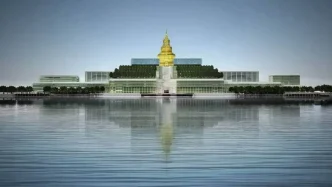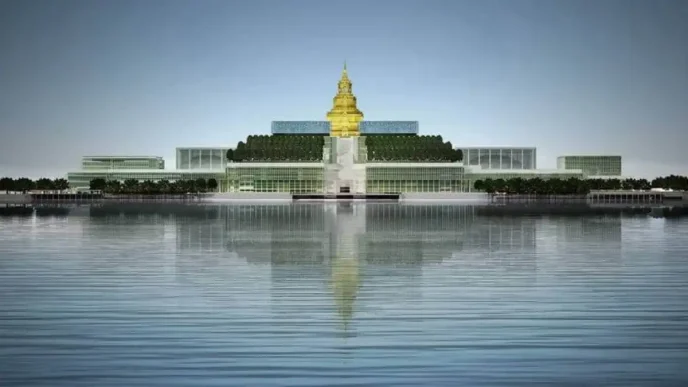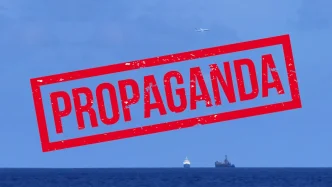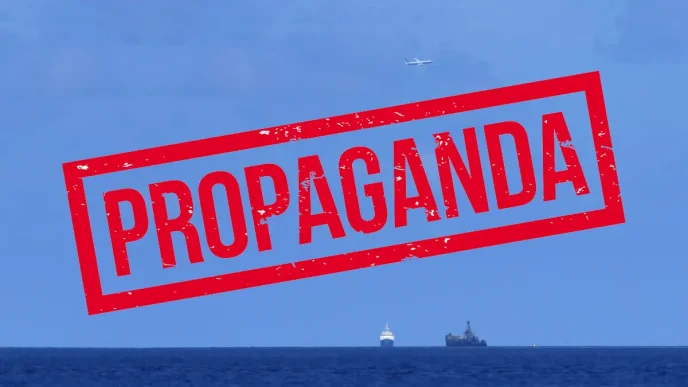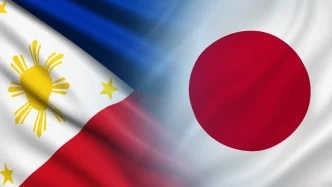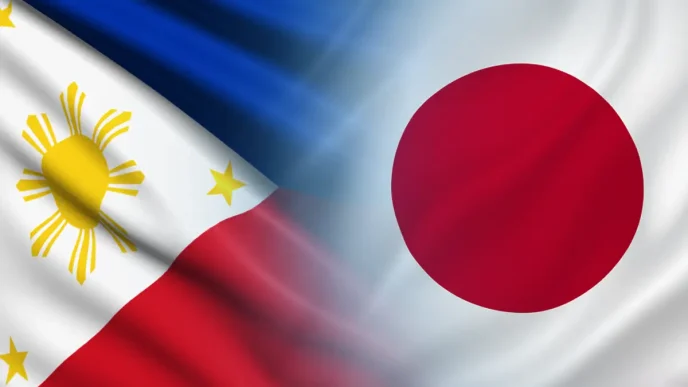President Ferdinand Marcos Jr. is keeping an open mind on the potential banning of online gambling in the Philippines, as the government navigates a complex debate over its social and economic implications. With the national budget for 2026 under preparation, the Palace has signaled that a decision will hinge on extensive consultations with stakeholders, including religious groups, amid growing concerns over gambling addiction and its impact on vulnerable populations.
Presidential Communications Office Undersecretary Claire Castro revealed on August 13, 2025, that the President is prioritizing a thorough examination of the issue. Speaking at a press conference, Castro emphasized that Marcos views the core problem not as gambling or online gaming itself, but as the addiction it can foster. “We must study this carefully and not act hastily because we need to hear from all stakeholders and concerned parties regarding this” Castro said, conveying the President’s stance in Filipino.
A Cautious Approach to Policy-Making
The President’s deliberative approach comes as several bills seeking to ban online gambling and its promotion are under consideration in the Senate. Lawmakers advocating for a ban argue that online gambling poses significant social risks, particularly to minors who may access these platforms with ease. The proposed legislation highlights issues such as financial ruin, family breakdowns, and the potential for criminal activities linked to unregulated online betting.
Castro noted that while Marcos has expressed personal concerns about addiction, he remains open to differing perspectives. “If, during the said meeting or conference with other stakeholders, it is stated that it should be banned, then the President will do so” she added. The exact timeline for these consultations remains unclear, but the inclusion of representatives from the Church—a powerful moral authority in the predominantly Catholic nation—signals the weight of ethical considerations in the debate.
Social Impacts Under Scrutiny
The rise of online gambling, often referred to as e-gambling or internet betting, has transformed the landscape of gaming in the Philippines. Platforms offering virtual casinos, sports betting, and other games of chance have proliferated, fueled by widespread internet access and smartphone penetration. While these platforms contribute to government revenue through licensing fees and taxes, critics argue that the social costs are mounting.
Reports from local advocacy groups and preliminary studies suggest that online gambling disproportionately affects low-income households, where individuals may wager beyond their means in hopes of quick financial gains. Minors, too, are at risk, as age verification mechanisms on many platforms remain lax or easily circumvented. The Department of the Interior and Local Government (DILG) has already taken steps to curb the trend, recently barring its personnel and local government officials from engaging in online gambling to set a public example.
Beyond individual harm, there are broader societal concerns. Lawmakers behind the Senate bills argue that online gambling exacerbates issues like debt, domestic tension, and even crime, as some turn to illegal means to fund their habits. The accessibility of these platforms—available 24/7 with minimal oversight—amplifies the potential for addiction, a point Marcos himself has highlighted as the central issue.
Economic Stakes in a Growing Industry
Yet, the online gambling sector is not without its defenders. The industry has become a notable contributor to the Philippine economy, particularly through the operations of Philippine Offshore Gaming Operators (POGOs), which cater primarily to foreign markets. These entities, licensed by the Philippine Amusement and Gaming Corporation (PAGCOR), generate significant revenue—estimated in the billions of pesos annually—and provide thousands of jobs, albeit often under scrutiny for labor and regulatory issues.
Proponents argue that a total ban could drive the industry underground, reducing government oversight and tax revenue while failing to eliminate the social harms. Instead, they advocate for stricter regulations, such as enhanced age verification, spending limits, and public awareness campaigns about responsible gaming. The economic argument is particularly salient as the government finalizes the 2026 national budget, where gambling revenues could play a role in funding social programs or infrastructure projects.
The debate over online gambling also intersects with broader questions about technology and governance in the digital age. As internet usage continues to grow—reaching over 70% of the population according to recent data from the Digital 2025 Report—the Philippines must grapple with how to regulate virtual spaces that transcend traditional legal boundaries. A ban, if enacted, could set a precedent for how the government addresses other online activities, from social media to e-commerce.
Church and Community Voices
The involvement of the Church in upcoming consultations underscores the cultural dimensions of the debate. In a country where Catholicism shapes much of public life, religious leaders have long opposed gambling in its various forms, viewing it as a moral vice that undermines family values and community cohesion. Past statements from the Catholic Bishops’ Conference of the Philippines (CBCP) have criticized gambling as a social ill that exploits human weakness, particularly among the poor.
While specific Church representatives for the consultation have not been named, their inclusion suggests that Marcos is seeking a balanced perspective that accounts for both secular and spiritual concerns. Community organizations, too, are likely to weigh in, especially those focused on youth welfare and poverty alleviation, who see online gambling as a barrier to social progress.
Regional Context and Comparisons
The Philippines is not alone in wrestling with the challenges of online gambling. Across Southeast Asia, countries like Thailand and Vietnam have imposed strict controls on gambling—both physical and digital—citing similar social harms. Thailand, for instance, bans most forms of gambling under the Gambling Act of 1935, though illegal online platforms remain a persistent issue. Vietnam, meanwhile, restricts gambling to specific zones and foreign nationals, with tight regulations on internet-based betting to curb addiction and money laundering.
In contrast, Singapore offers a regulated model through state-controlled entities like Singapore Pools, which oversees online betting with stringent safeguards. These regional examples provide potential frameworks for the Philippines, whether through outright prohibition, controlled legalization, or a hybrid approach. Marcos’ consultations may draw on such comparisons to inform a policy that aligns with both national values and practical realities.
Political Dimensions of the Debate
The online gambling question also carries political weight for Marcos, who has faced scrutiny over social and economic policies in his tenure. A decision to ban or regulate the industry could shape public perception of his administration’s priorities—whether it leans toward populist measures that protect vulnerable groups or economic pragmatism that preserves revenue streams. With the 2026 budget looming, the timing of any policy shift will be critical, as it could influence allocations for social welfare, education, and health—sectors often cited as counterweights to gambling’s harms.
Moreover, the Senate’s role in pushing for a ban reflects broader legislative tensions over digital governance. Lawmakers from various parties have coalesced around the issue, framing it as a moral imperative rather than a partisan one. Yet, the implementation of any ban would require coordination between national and local authorities, as well as robust enforcement mechanisms to tackle illicit platforms—a challenge given the Philippines’ archipelagic geography and varying levels of internet infrastructure.
Looking Ahead: A Policy in Flux
As Marcos prepares to hear from stakeholders, the future of online gambling in the Philippines remains uncertain. The President’s emphasis on addiction as the core issue suggests a potential focus on harm reduction—perhaps through education campaigns or treatment programs—rather than an immediate ban. However, the influence of religious and community voices, combined with legislative momentum in the Senate, could tip the balance toward stricter measures.
For now, the nation watches as consultations unfold, with the outcome likely to resonate beyond gambling itself. Will the Philippines chart a path of prohibition, regulation, or something in between? As digital challenges continue to reshape society, Marcos’ decision may offer a glimpse into how the country navigates the intersection of technology, morality, and governance in the years ahead.








